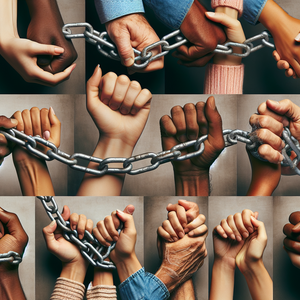The Impact of Testing on Creativity: Are We Stifling Innovation?

Standardized tests aim to evaluate students' knowledge and skills uniformly; however, this one-size-fits-all methodology can impose significant pressure on students. The necessity to memorize facts and figures to succeed on these assessments detracts from opportunities for engaging in deeper, more meaningful learning experiences. Research from the American Psychological Association reveals that high-stakes testing is correlated with increased anxiety levels among students, which can impair cognitive function and hinder problem-solving capabilities. For example, students often resort to focusing on test-taking strategies rather than immersing themselves in subject matter or pursuing creative projects. This shift from a focus on understanding concepts to a singular goal of passing exams can create a superficial comprehension of knowledge, one that does not foster original thought or innovation. Instead of cultivating an environment that encourages exploration and curiosity, standardized testing promotes a culture of fear and conformity.
The Creativity Crisis
The implications of standardized testing extend beyond academics; they contribute to what some scholars have termed a "creativity crisis." A notable study conducted by the Torrance Center for Creativity and Talent Development reports a significant decline in creativity scores among American children over the past two decades, which coincides with the proliferation of standardized testing measures in schools. This trend raises urgent questions about the long-term repercussions for future generations, who may be ill-equipped to think critically or innovate effectively. The educational system's prioritization of rote memorization over creative problem-solving fosters an environment where students are apprehensive about making mistakes. Such apprehension can stifle experimentation and exploration, both of which are essential components of the creative process. Consequently, students may become preoccupied with providing expected answers rather than pursuing unique perspectives or exploring novel solutions.
Fostering Creativity in Education
To mitigate the adverse effects of standardized testing on creativity, educators and policymakers must consider alternative assessment methods that emphasize innovative thinking. Project-based assessments, for instance, encourage students to tackle real-world challenges using their knowledge creatively. These assessments promote collaboration, critical thinking, and practical applications of skills, leading to a more profound understanding of subject matter. Moreover, integrating creative arts into the curriculum can offer students avenues for self-expression and imaginative thinking. Interdisciplinary programs that blend subjects like science and art can inspire students to approach problems from multiple perspectives, ultimately enriching their learning experience.
The Role of Educators
Educators play a pivotal role in fostering creativity within the classroom. By cultivating a supportive environment that values curiosity and exploration, teachers can help students feel more comfortable taking risks. Encouraging open-ended questions and discussions can stimulate creative thought and allow students to delve into their interests unhindered by the constraints of standardized testing. Additionally, investing in professional development for teachers is essential. Training programs should emphasize the significance of creativity in education and equip educators with the tools and strategies necessary to integrate creativity into their teaching practices. This ensures that students receive a well-rounded education that prepares them for the complexities of the modern world.
While standardized testing remains a dominant method of evaluating student performance, its implications for creativity warrant serious consideration. The pressures associated with high-stakes assessments can stifle innovation and critical thinking, ultimately affecting a generation's ability to tackle future challenges creatively. By embracing alternative assessment methods and nurturing a culture of creativity within education, we can cultivate a generation of thinkers and innovators prepared to contribute meaningfully to society. It is imperative that we rethink our educational approaches to prioritize creativity alongside academic achievement, ensuring we do not stifle the potential of future innovators. The need for a balanced educational framework has never been more urgent, and it is our duty to respond with actionable change.
Creative Curriculum Developer
Educational institutions, educational technology companies, and non-profit organizations focused on youth development.
Job Description
Design and implement innovative educational programs that encourage critical thinking and creativity among students.
Collaborate with educators to develop project-based assessments and interdisciplinary lesson plans that engage students in real-world problem-solving.
Skills Needed
Strong understanding of pedagogical theories
Experience in curriculum design
Expertise in educational technology tools
Educational Psychologist
Schools, private practices, and educational consulting firms.
Job Description
Conduct assessments to identify students' learning needs and emotional challenges, providing insights to improve educational outcomes.
Develop targeted interventions and support strategies that foster creativity and reduce anxiety associated with standardized testing.
Skills Needed
Advanced degree in psychology
Knowledge of educational systems
Experience in counseling or therapy
Assessment Specialist
Educational testing organizations, school districts, and government education departments.
Job Description
Design and evaluate educational assessments that focus on student creativity and problem-solving skills rather than rote memorization.
Research and implement alternative assessment methods, including performance-based evaluations and portfolio assessments.
Skills Needed
Strong analytical skills
Background in educational measurement
Experience with data analysis software
Art Integration Specialist
K-12 schools, arts organizations, and educational non-profits.
Job Description
Collaborate with teachers to incorporate visual arts, music, and performing arts into core subjects, enhancing students’ creative thinking.
Facilitate workshops and training sessions for educators on best practices for integrating arts into the curriculum.
Skills Needed
Background in fine arts or art education
Strong communication skills
Experience in curriculum development
Instructional Designer for Creative Learning
E-learning companies, universities, and corporate training departments.
Job Description
Create and develop engaging online courses and learning materials that promote creative thinking and collaboration among students.
Utilize multimedia and interactive tools to enhance the learning experience and encourage exploration of diverse subjects.
Skills Needed
Proficiency in instructional design software
Understanding of multimedia production
Experience in adult learning principles


